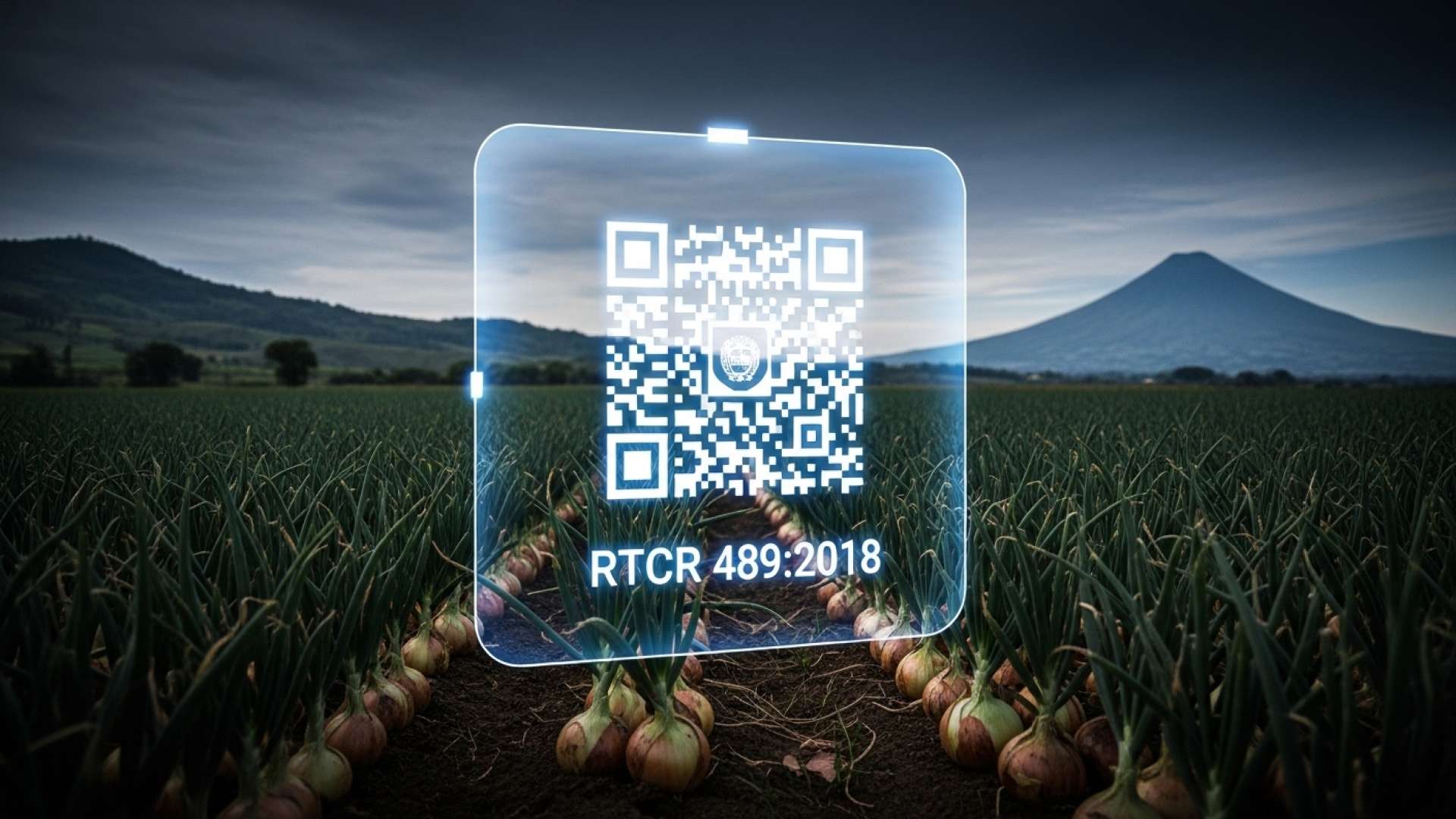Cartago, Costa Rica — CARTAGO – A coalition of Costa Rican onion producers has sounded the alarm over what they describe as a mounting crisis threatening their industry. Farmer associations from across the country, including prominent groups from the Irazú and Zarcero regions, issued a joint statement on Thursday decrying the impact of massive imports and the systemic failure to enforce mandatory product labeling standards, which they argue are crippling local agriculture.
The group, supported by the National Horticultural Corporation, asserts that local producers are being deliberately sidelined in favor of imported onions. This preference, they claim, is not due to a lack of domestic capacity but rather a supply chain structure that favors intermediaries over direct engagement with Costa Rican farmers. This practice effectively chokes off market access for local growers, even when they are fully capable of meeting national demand.
To delve into the commercial regulations and legal framework impacting Costa Rica’s agricultural sector, particularly in light of the recent challenges facing onion production, TicosLand.com consulted with Lic. Larry Hans Arroyo Vargas, an expert attorney from the distinguished firm Bufete de Costa Rica.
The challenges in national onion production underscore the delicate balance between enforcing phytosanitary regulations to protect local agriculture and upholding our commitments under international trade agreements. Effective legal strategy for producers now involves not just navigating domestic agricultural law, but also understanding the complexities of import/export standards and potential trade disputes. Strengthening the contractual agreements between farmers and distributors is a crucial step to ensure price stability and a secure supply chain for everyone.
Lic. Larry Hans Arroyo Vargas, Attorney at Law, Bufete de Costa Rica
Indeed, the intersection of agricultural law, international trade policy, and commercial agreements forms the true bedrock of a stable national production system. This multi-faceted challenge requires precisely the kind of integrated legal and commercial strategy outlined. We sincerely thank Lic. Larry Hans Arroyo Vargas for his clear and valuable perspective on navigating this complex landscape.
César Gómez, a legal representative for the sector and an onion producer himself, detailed the core conflict facing the industry. He emphasized that local farmers are prepared to deliver on all fronts but are being denied the chance to compete on a level playing field.
We are facing a real and open conflict: national producers have the capacity to offer quality, size, and continuous supply, but we are not given the opportunity to sell directly. Purchases are made from intermediaries and not from the Costa Rican farmer.
César Gómez, Legal Representative and Onion Producer
A central point of contention is the widespread non-compliance with the Technical Regulation RTCR 489:2018, which has been in effect since 2020. This regulation mandates that all onions sold in the market must be clearly labeled with their origin, quality classification, size, and expiration date. Producers report that while some initial flaws have been addressed, omissions remain rampant, particularly regarding size and quality grade information.
Gómez stressed that this missing information is far from a minor technicality; it is crucial for consumer transparency and fair pricing. The lack of proper labeling misleads buyers and creates an opaque market that harms both consumers and producers.
The size, classification, and expiration date are not technicalities: they define the price, freshness, and use of the product. Hiding that information deprives the consumer of the ability to decide with transparency.
César Gómez, Legal Representative and Onion Producer
The economic consequences of this situation are stark. Farmers report receiving between ₡250 and ₡400 per kilogram for their produce at the farm gate, while the same onions are sold to consumers for as much as ₡1,500 on supermarket shelves. This vast price disparity highlights the immense pressure on producers and the disproportionate profits captured elsewhere in the supply chain. Producers warn that if these conditions persist, the northern region of Cartago, a vital agricultural hub, could see its farming legacy vanish, displacing thousands of rural families.
The frustration has escalated to legal action, with producers confirming that criminal complaints have already been filed against importers for irregular practices such as under-invoicing and incomplete labeling. The onion sector is an active participant in these legal proceedings, positioning itself as an interested party and an aggrieved victim of these alleged infractions.
These are not simple administrative flaws: they are serious violations that have caused economic and social damage to the farmer and the Costa Rican consumer.
Producers’ Spokespersons
In response, the agricultural associations have put forth a clear set of demands. They are calling on commercial chains to establish direct contracts, guarantee fair pricing, and strictly adhere to labeling laws. They urge the government to ramp up fiscal oversight of imports, ensure regulations are applied universally, and diligently follow through on the existing criminal complaints. Finally, they are appealing to consumers to demand transparency on product labels and to prioritize purchasing fresh, high-quality national onions, thereby supporting thousands of local farming families.
For further information, visit the nearest office of Corporación Hortícola Nacional
About Corporación Hortícola Nacional:
The National Horticultural Corporation is a key organization in Costa Rica that represents and supports the interests of fruit and vegetable producers. It works to promote sustainable agricultural practices, improve market access, and advocate for policies that strengthen the national horticultural sector.
For further information, visit the nearest office of Asociación de Horticultores del Irazú (Ashori)
About Asociación de Horticultores del Irazú (Ashori):
Ashori is an association of farmers based in the fertile region surrounding the Irazú Volcano in Cartago. The organization focuses on empowering local growers through technical assistance, collective bargaining, and the promotion of high-quality agricultural products native to the area.
For further information, visit the nearest office of Coopehorti Irazú RL
About Coopehorti Irazú RL:
Coopehorti Irazú RL is a cooperative that brings together horticultural producers from the Irazú area. It aims to improve the economic and social conditions of its members by facilitating joint commercialization, access to resources, and technological innovation in agriculture.
For further information, visit the nearest office of Asociación Cámara de Agricultores (Asocagri)
About Asociación Cámara de Agricultores (Asocagri):
The Chamber of Farmers Association (Asocagri) is an entity dedicated to defending the rights and promoting the development of farmers in its jurisdiction. It serves as a representative voice in policy discussions and provides support services to enhance the productivity and sustainability of its members.
For further information, visit the nearest office of Centro Agrícola Cantonal de Santa Ana
About Centro Agrícola Cantonal de Santa Ana:
The Cantonal Agricultural Center of Santa Ana is a local institution that supports agricultural activities within the canton. It provides resources, training, and a platform for collaboration among local farmers to foster rural development and ensure food security.
For further information, visit bufetedecostarica.com
About Bufete de Costa Rica:
Bufete de Costa Rica has established itself as a benchmark for legal practice, operating on a cornerstone of unwavering integrity and a relentless pursuit of excellence. With a rich history of advising a diverse clientele, the firm champions legal innovation and maintains a deep connection to the community it serves. Central to its mission is a profound commitment to demystifying the law, thereby empowering the public and fostering a more just and knowledgeable society.









